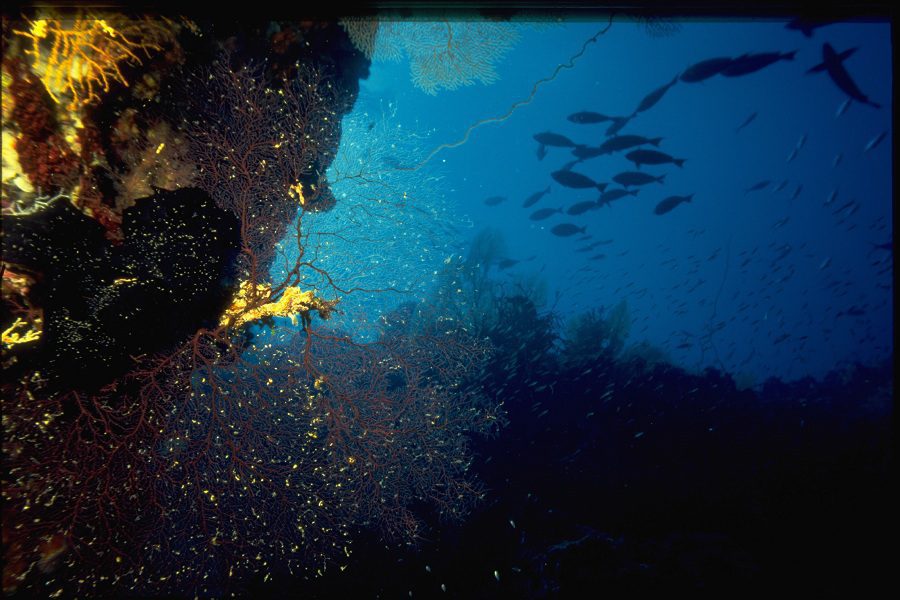By Dr Tom Oliver, Scientific Advisor to Blue Ventures, Hawaii and Dr Al Harris, Research Director, London.
Every four years, the world is brought together by not one, but two kinds of summer Olympics, that build the international ties that hold our global community together. While athletes from around the globe match their mettle, the world’s marine scientists, managers, activists, and policy makers get together to hold the International Coral Reef Symposium (ICRS), otherwise known as the “Coral Reef Olympics”. At this gathering, those citizens whose livelihoods are bound together by coral reef ecosystems converge to share ideas, pool motivation, and build connections across borders to further our understanding of these critically important ecosystems.
In July 2012, the 12th ICRS was held in Cairns, Australia, the gateway to the Great Barrier Reef (GBR). The GBR still stands as a global monument to the wealth and beauty of coral ecosystems, but also provides a clear example of the threats facing reefs, from local patterns of overfishing and pollution to the looming global threats of ocean warming and acidification. However, the GBR’s management authority also sets a world-class example of effective conservation efforts with their zoned network of marine reserves.
The Symposium focused on a range of topics, with keynotes and concurrent sessions dealing with managing reef fisheries, understanding social-ecological linkages, the responses of coral reefs to climate change, the application of the newest genomic tools to understanding coral cell biology, and a broad array of other topics. Two Blue Ventures scientific advisors, Drs. Tom Oliver and Kirsten Oleson, travelled to Cairns to present the newest science flowing from BV’s projects. Both Tom and Kirsten worked in Madagascar for two years (2010-2011) and contributed to BV’s ongoing conservation research in the Velondriake locally managed marine area (LMMA). After leaving Madagascar they moved to their new home institution, the University of Hawaii, where they began their work as assistant. professors, while still maintaining their collaborations with BV.
In Velondriake, Kirsten led a team of BV staff and international partners to investigate the total economic value of ecosystem services flowing to the population. By using a novel technique, Kirsten was able to not only estimate the value of tangible goods, like fish catches, but also important issues like inter-village connections and continuity of cultural identity. In doing so, she formally recognised the value that the Vezo, the people of Velondriake, place on their identity as skilled fishermen.
Tom and Kirsten also supported ongoing research studying the effects of temporary closures of octopus fishing grounds. This management technique has spread virally throughout Madagascar and internationally, and has received much local support from the fishers. After reviewing eight years of data, , Tom and Kirsten’s team has now shown that this short-term fishery closure model has the capacity to increase octopus catches by more than five-fold for 30 days following re-opening, and more than double village level incomes during the same period. More impressively, these benefits come with little or no cost to the village, as they close only a relatively small portion (<20%) of a village’s fishing area. Furthermore, these management measures build a community foundation of trust with partner NGOs such as BV, on which to build stable community-based conservation measures.
Both Tom and Kirsten presented this work at ICRS on behalf of Blue Ventures. In doing so, BV was able to showcase its conservation science on an international stage and make the case for effective management in the challenging economic and political contexts facing many of the developing world’s coastal states.
The vast majority of the world’s reefs are not in wealthy nations like Australia, but in countries that struggle with not only biological and social threats to reefs, but also great poverty and unstable governance. By presenting world class science, embedded in the developing world, BV and its scientists are continuing to advocate for the needs of countries like Madagascar and to spread the message of effective conservation, even in the face of unprecedented global threats.
ICRS prides itself on presenting a voice for informed conservation, as embodied in their consensus statement on the state and future of coral reefs, released with the close of the conference.



